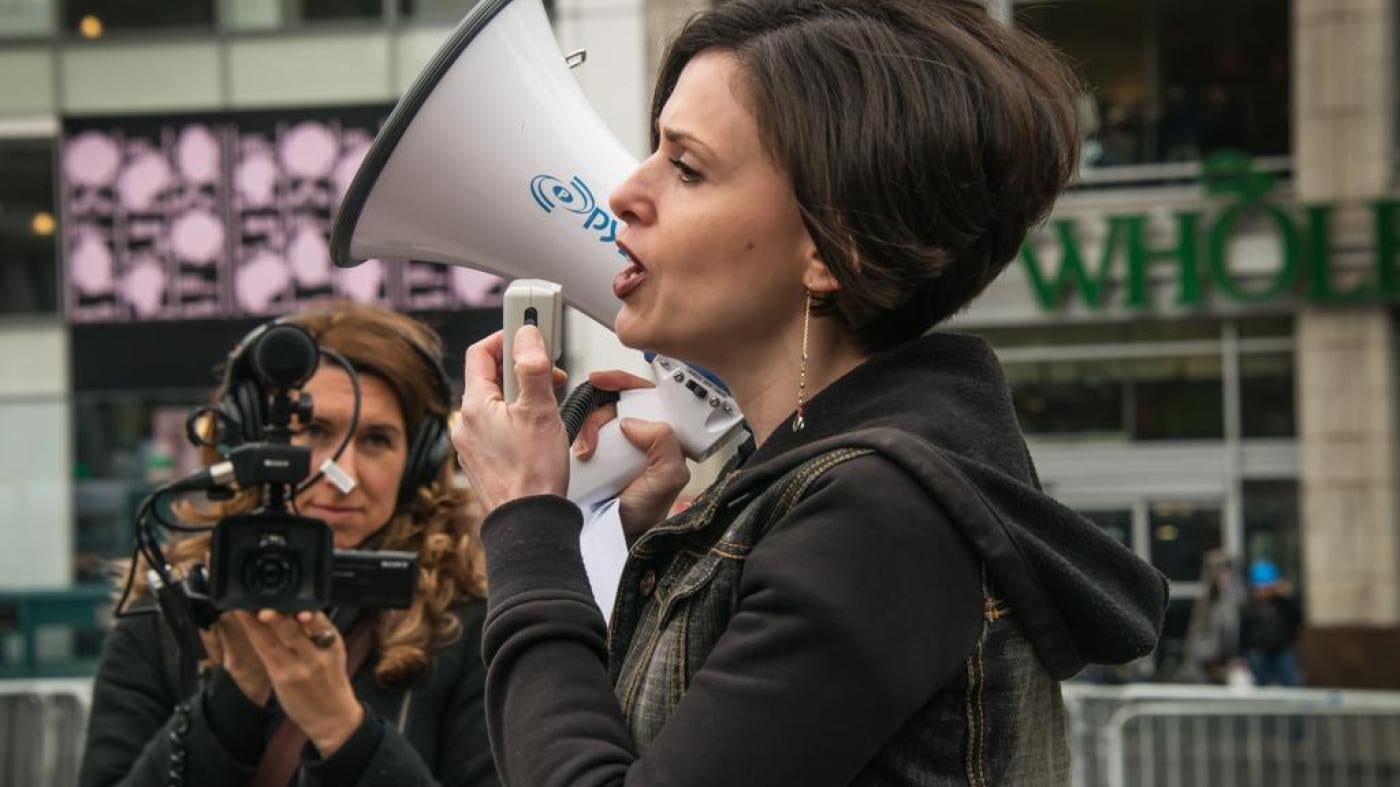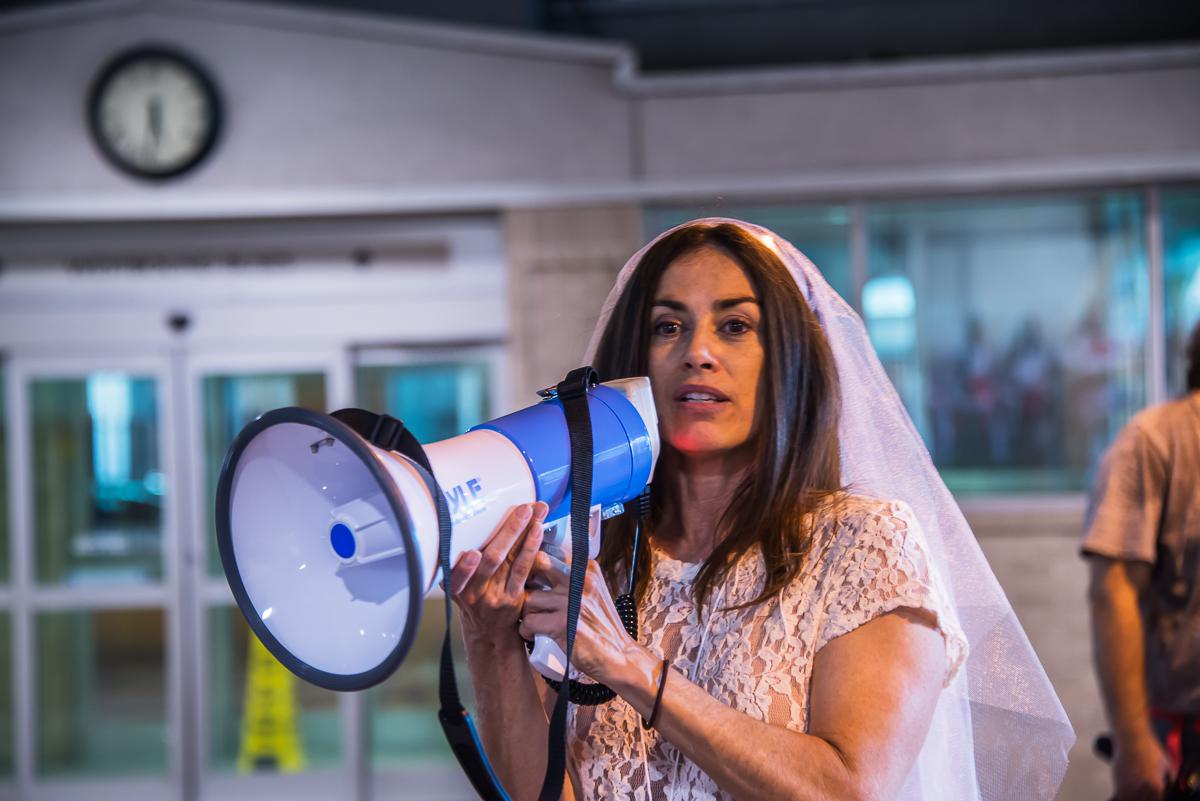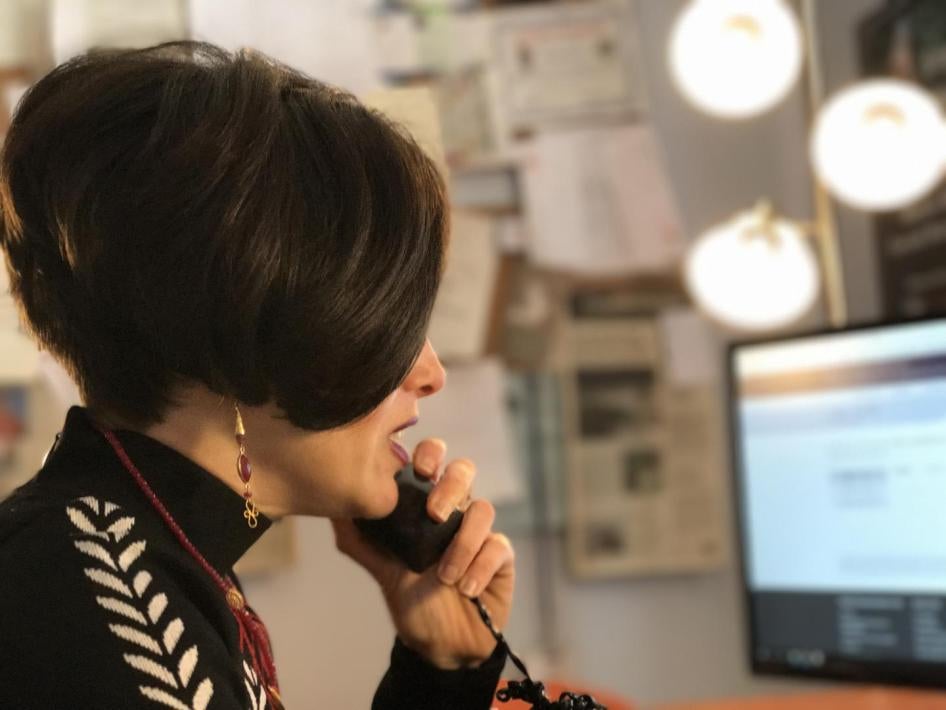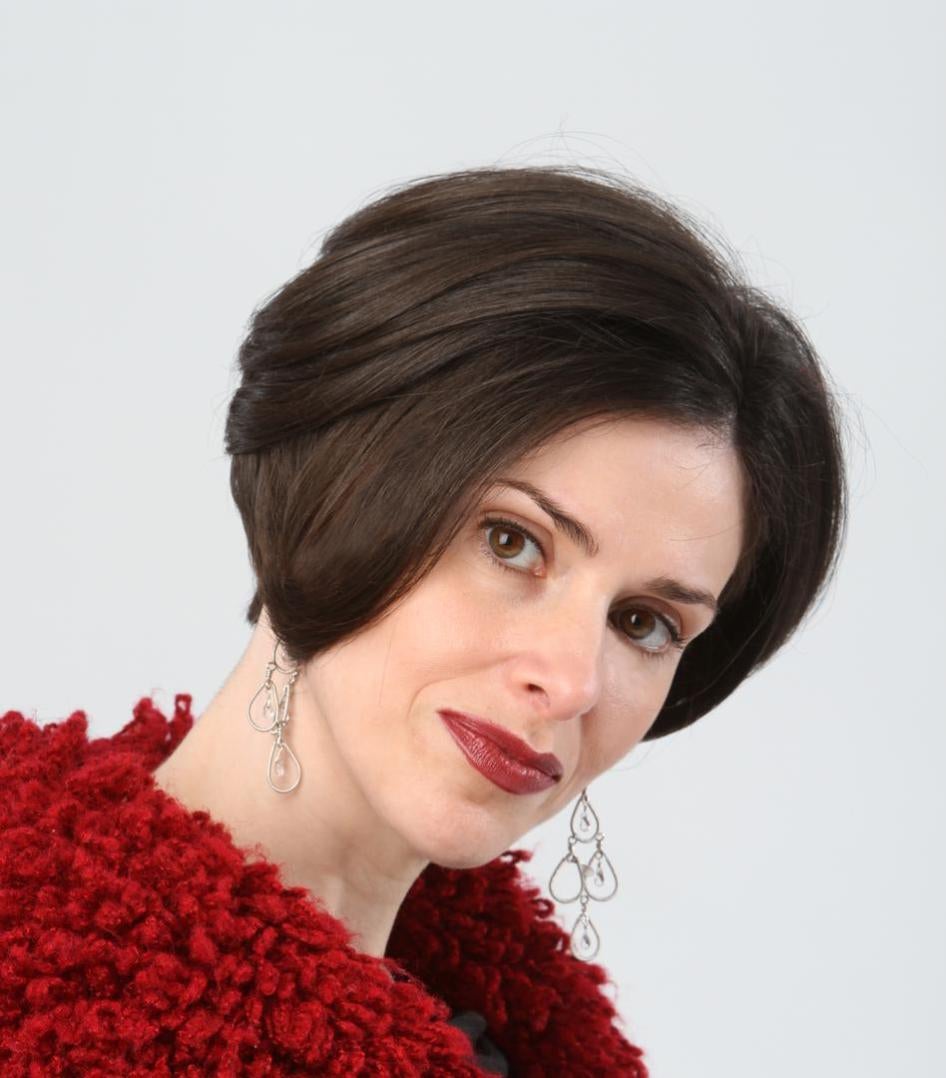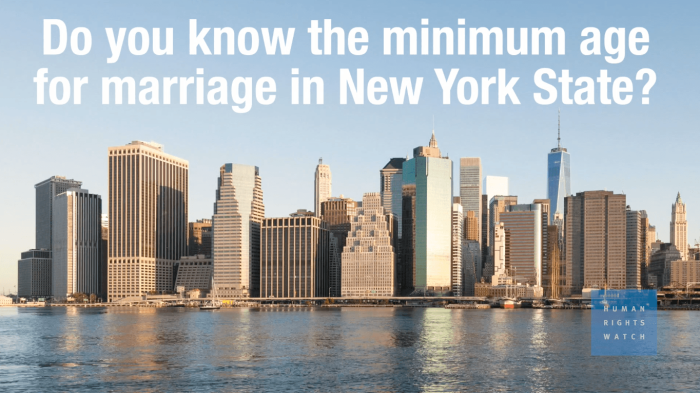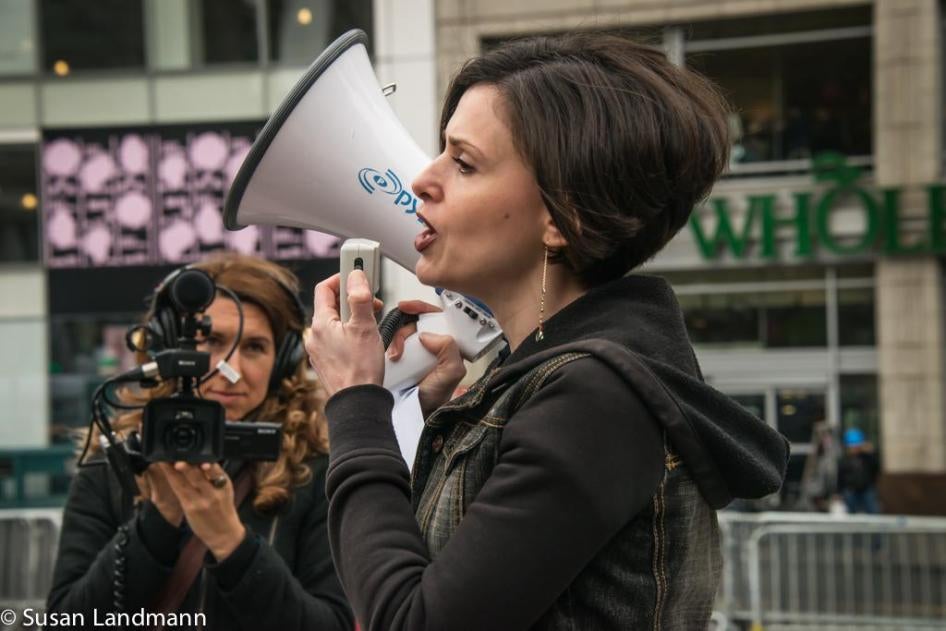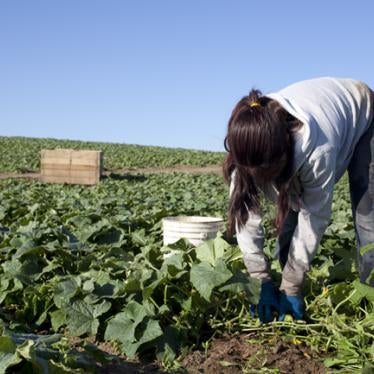At 19, Fraidy Reiss was trapped in an arranged marriage to an abusive husband and couldn’t find her way out. She lived in New York, in an Orthodox Jewish community; as far as her family was concerned, divorce wasn’t an option. Family and friends told her to be patient, but it didn’t get better. She struggled for years and eventually made a five-year plan to get herself educated, get a job, and get out. Ultimately, she got her divorce, winning full custody of her daughters.
Today, at 42, she runs a nonprofit, Unchained at Last, helping other women like her – women in arranged or forced marriages who want to leave and feel powerless to do so. Her pledge to help women escape abusive marriages led her to latest mission: the fight against child marriage.
Fraidy already knew child marriage existed – some girls left her high school at 16 or 17 to marry. But the large number of girls younger than 18 who called Unchained surprised her. Because they were minors, though, Fraidy could not help them.
“If I help [a girl] leave home someone could accuse me of kidnapping,” she said. “Most shelters won’t take minors. And the overwhelming barriers they face … they struggle to find attorneys because any contract with a child is voidable. They often can’t even bring a suit in their own name.”
The best way to help these girls, Fraidy decided, was to take on the bigger issue of child marriage. Which is what she’s been doing, one US state at a time.
Research demonstrates that child marriage – marriage under age 18 – is associated with severe harm. A 2010 study found that girls or young women in the US who married before age 19 were 50 percent more likely than unmarried girls to drop out of high school and only 25 percent as likely to complete college. Girls who marry before age 16 in the US are about 31 percent more likely to end up in poverty later. Researchers also found associations between child marriage and mental and physical health disorders. One US study found that marrying as a teenager was associated with a 23 percent higher risk of disease. Research in other countries shows a correlation between child marriage and domestic violence.
Marriage before 18 occurs in every region of the world, and it is legal in every US state, although some states require parental permission and sometimes permission from a judge. In New York, girls as young as 14 can marry. Some states don’t even have a minimum age, and there are records of 12-year-old girls marrying in the US in the last 15 years. In most US child marriages, girls marry adult men, many of them significant older.
Fraidy got married at 19, so she wasn’t a child bride. But she understands the feelings of powerlessness people have when pressured into or trapped in a marriage.
Growing up in a conservative Orthodox Jewish community in Brooklyn, she was forbidden to date or even to become friends with boys. She met her husband through a matchmaker, went on a few dates – always in public – and married him after a six-week engagement. She felt pressure from her community to marry, and worried she would be an “old maid” if she turned 20 without a husband.
One week after the wedding, her husband woke up late for work. He screamed, cursed, and punched his fist through the wall. Six feet tall and 240 pounds, he dwarfed Fraidy with his angry presence.
“And that was because he woke up late,” she said. “I stood there shaking, thinking, wow, this is a problem. That day, I knew marrying him was a mistake.”
Over the next weeks, months, and years, she asked her mother, rabbis, and husband’s father for help. “They’d say he was young: ‘He has to grow up, he has a little bit of a temper, you have to learn how to live with each other.’”
Her husband never hit her. She never had bruises. He smashed walls. He broke dishes and windows and furniture. And he would threaten to kill her, even in front of their two small daughters. Fraidy accepted it as her life.
Things began to change for Fraidy when, at 27, a friend gave her the name of a therapist.
“She opened my eyes,” Fraidy said of the therapist. “She explained what domestic violence was, which was huge. She was the first person who confirmed for me that I wasn’t crazy, he wasn’t going to grow up, and that I needed to be afraid.”
She knew her community wouldn’t help her, that she was on her own. Shortly after her husband’s next outburst, she made her five-year plan to save money and get an education. Her husband often bought her a gift after violent episodes. She’d return them and hide the cash in a cereal box, along with money he gave her for other expenses. Over five years, she saved $40,000.
She was accepted at Rutgers College. Her husband forbade her from going; she stood her ground. At 32, she graduated and found a job as a journalist. Then she changed the locks on the house and filed for divorce.
Her husband harassed, stalked, and threatened to kill her. Her family disowned her. But three-and-a-half years later, she got her divorce and full custody of her girls.
Then she bought a home – the first woman in her family to do so without a husband. “I was so filled with gratitude,” she said. At that moment, she pledged to help other women in similar situations.
By then working as a private investigator, Fraidy set up Unchained at Last in 2011 and decided she would devote two hours a week to helping women from all backgrounds leave arranged or forced marriages. She planned to help 5 women her first year, 10 her second, and so on. By the end of her first year, she had 30 clients.
She also began receiving calls about girls. Many of these girls weren’t yet married, but teachers or guidance counselors they had confided in called Fraidy. Some girls were taken overseas to be married. A few girls ended up in the hospital after what appeared to be suicide attempts.
“I can’t even describe what it’s like to have a girl pour her heart out to you” when there’s nothing you can do, Fraidy said, starting to cry. “The guilt and the sadness were overwhelming. Here I am telling people to call me and I can’t help them.”
She first took on the child marriage laws in her home state of New Jersey. There, between 1995 and 2012, nearly 3,500 girls – at least a few as young as 13 – were married. Fraidy, who quit her job in 2015 to work full time at Unchained, helped New Jersey’s legislators draft a bill setting the minimum age of marriage at 18, with no exceptions. She met with lawmakers all of last summer, urging them to support the bill.
This winter, the bill was passed by the New Jersey Assembly, the lower house of the state legislature. In February, it was approved by a committee in the Senate, the upper house, and sent on for a vote by the full Senate, where it stands a good chance of becoming law.
At the same time, Fraidy worked with lawmakers to draft a similar law for New York, where girls as young as 14 can marry with permission from their parents and a judge. She has also been in discussions with lawmakers in Massachusetts and Maryland about trying to end child marriage in those states. Fraidy’s goal is to create momentum that will lead to reforms in all 50 states.
In New York, she is helping to push for legislators to approve the law, including by partnering with Human Rights Watch, as well as the National Organization for Women, Sanctuary for Families, and the Tahirih Justice Center. They created an advocacy campaign to raise awareness of the issue, and to ask people to contact members of the state assembly and senate, as well as the governor, to demand reform.
Fraidy still keenly feels that she failed the girls she couldn’t help. “I can’t help them, but maybe I can save others,” she said. “This is going to continue, until we change these laws.”
